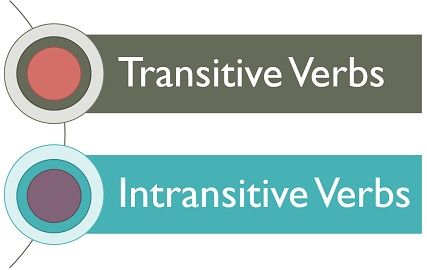 Basically, transitivity is a universal characteristic of a clause, which results in the transfer of activity from an agent (subject) to the patient (object). When you talk about the difference between a transitive and intransitive verb, the point to ponder is whether the sentence contains object or not. While transitive verb is one that has a subject and object as well, the intransitive verb has a subject only.
Basically, transitivity is a universal characteristic of a clause, which results in the transfer of activity from an agent (subject) to the patient (object). When you talk about the difference between a transitive and intransitive verb, the point to ponder is whether the sentence contains object or not. While transitive verb is one that has a subject and object as well, the intransitive verb has a subject only.
A sentence consists of a subject, verb and object. Subject implies the doer (noun) of the action, the verb expresses the action, and object denotes the person or thing (noun) on which the action is done. There are mainly two types of verbs, transitive verb and intransitive verb. Let’s take a look at the examples to understand their difference:
- Transitive: I play badminton daily.
Intransitive: The child plays in the park daily. - Transitive: She walks to the office.
Intransitive: Neha walks on the road.
Content: Transitive Verb Vs Intransitive Verb
Comparison Chart
| Basis for Comparison | Transitive Verb | Intransitive Verb |
|---|---|---|
| Meaning | Transitive Verbs refer to the verbs that possess a subject and an object. | Intransitive Verbs refer to the verbs that possess a subject only and have no direct object. |
| Passive voice | The sentence having transitive verb can be transformed into passive voice. | The sentence having transitive verb cannot be transformed into passive voice. |
| Example | I am waiting for my grandfather to come. | She laughed. |
| She rushed to the hospital. | I ran | |
| Jane goes to salon every month. | You won. |
Definition of Transitive Verbs
Transitive Verbs are the types of action verbs having an object, which receives the action. When the verb used in a sentence is able to answer “who” or “what” of the action, i.e. who or what is affected by the action, then that verb is considered as a transitive verb. Some examples of transitive verbs are given below:
- Alex studies for his final exams.
- My mom likes bananas.
- She drives the car very carefully.
- Peter works at his friend’s company as a Manager.
- You painted the table.
- I appreciate his loyalty
- Could you pass me the bowl?
Here, the words which are in bold are the verbs in the sentence, while the words or phrases in italics are the objects.
Definition of Intransitive Verbs
Intransitive verbs are those action verbs that reflects complete action, even when there is no direct object which follows it. In an intransitive verb, the action performed by the subject is not passed to an object. However, there may be a word or phrase that comes after the verb, but they are not the object, as they tell you “how” or “where” the action took place. Let’s look at the given examples for better understanding:
- It stopped immediately.
- She travelled across the state.
- I have to go now.
- His mother died.
- The incident took place in the morning.
- The movie started at 12 pm.
- When the work is over, we went for a long drive.
Here, the words in bold are the verbs in the sentence.
Key Differences Between Transitive and Intransitive Verbs
The difference between transitive and intransitive verbs are discussed in the points given below:
- A transitive verb can be understood as a verb that consists of one or more objects, on which the action is directed. Conversely, an intransitive verb is described as the verb which does not require an object to reflect its meaning.
- A sentence having a transitive verb can be converted into a passive voice. As against, in the absence of a direct object, passive sentences cannot be formed, if the sentence consists of intransitive verbs.
Examples
Transitive Verbs
- I go to the dancing class every Saturday.
- You need to buy some chocolates for the students.
- She sent a mail to the top executive.
- Jury told Peter about the accident.
Intransitive Verbs
- I live in a hostel in Jaipur with my sister.
- It happened yesterday.
- The flight departs at 1 pm.
- She’s playing.
How to remember the difference
When you understand the difference between transitive and intransitive verbs it will help you deal with confusing English verbs like lay and lie, sit and set, wherein lay is a transitive verb, whereas a lie is an intransitive one, and similarly set is a transitive verb and sit is intransitive one.






Leave a Reply